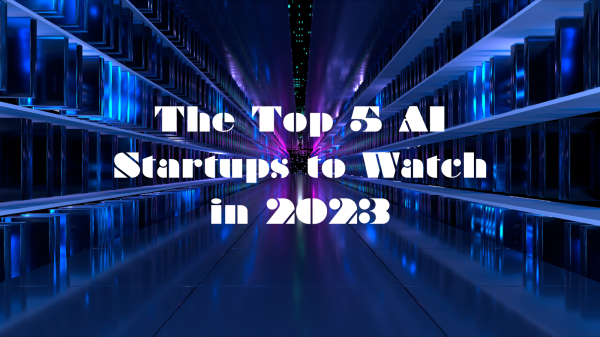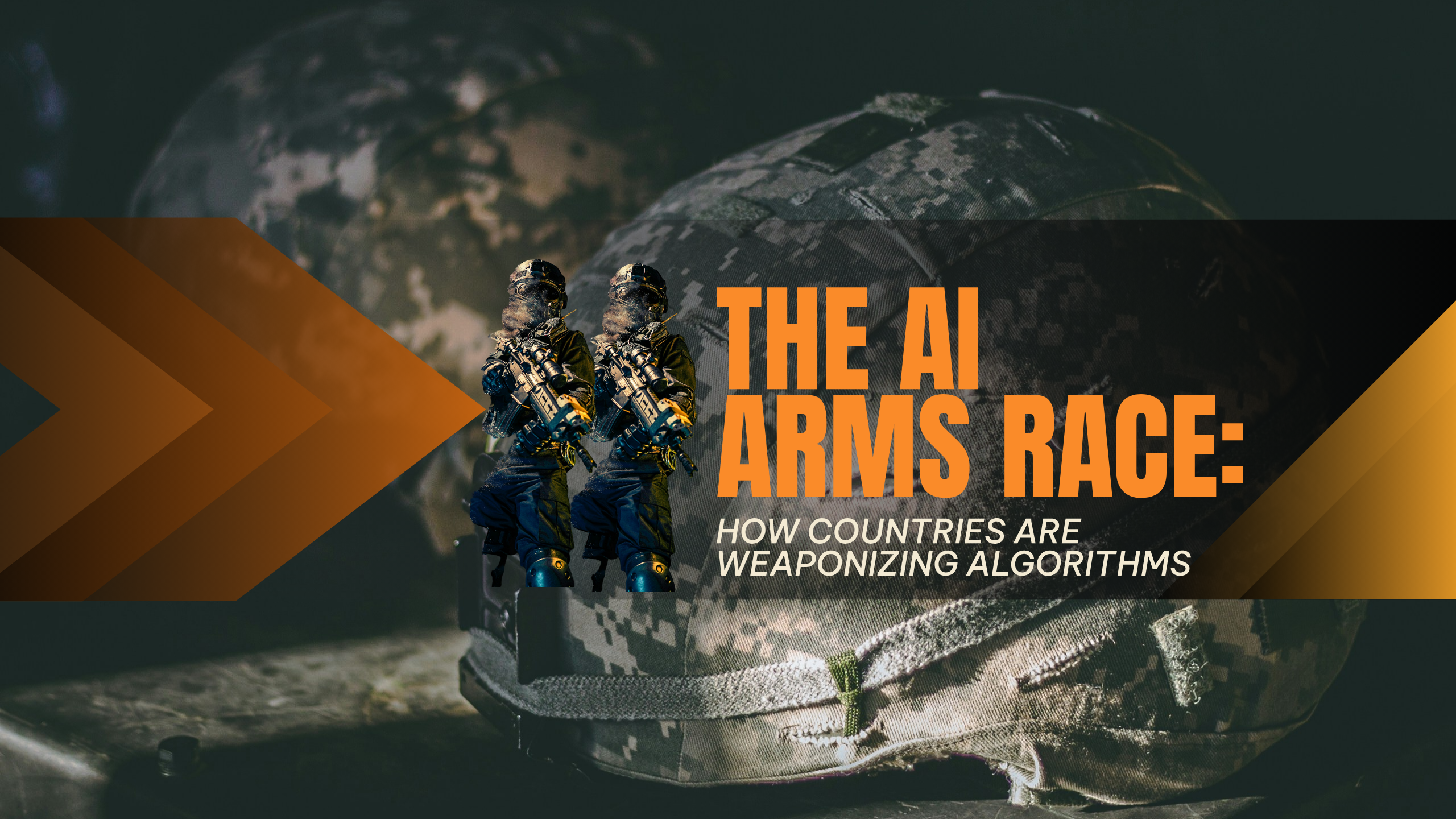As artificial intelligence (AI) technologies advance at an unprecedented rate, nations around the globe are engaged in a new form of arms race—one not fought with bullets or bombs, but with algorithms and data. The stakes are high, with national security, political power, and technological dominance on the line. The “AI arms race” is here, and the question is no longer if countries are weaponizing AI but how they are doing it. Is this new wave of digital militarization making the world safer, or is it hurtling us toward a new kind of global conflict?
In this article, BeyondAINow.com dives into the controversial world of AI in defense and geopolitics, examining how countries like the United States, China, and Russia are deploying these technologies. Are they building a safer world, or a more vulnerable one?
The Dawn of the AI Arms Race
Artificial intelligence has become an essential tool for national defense strategies. Governments are pouring billions into AI research to gain a strategic advantage, from predictive analytics to advanced weapon systems. The shift is dramatic. In the past, military might was measured in physical terms—troop numbers, missiles, and fighter jets. Today, power lies increasingly in digital warfare and data supremacy.
One of the most prominent AI applications in the military sector is predictive analytics. With advanced machine learning, governments can process vast datasets to anticipate enemy moves, predict potential conflicts, and enhance decision-making speed. But there’s a darker side: these same algorithms can fuel espionage, cyber-attacks, and information warfare on an unprecedented scale.
National Security: A Justification for Weaponizing AI?
Countries argue that their pursuit of AI in military contexts is purely for defense. National security remains a driving justification for developing powerful AI capabilities. Nations claim that by advancing their AI defenses, they can better protect their citizens and deter foreign threats.

For example, AI-driven missile systems are now capable of autonomous decision-making, allowing for rapid responses to threats. In theory, this could make warfare faster, more efficient, and less dependent on human intervention. However, it also raises serious questions about accountability. If an AI makes an error, who bears responsibility? The ethical gray area surrounding autonomous weapon systems worries both policy makers and ethicists.
AI Surveillance and Cyber Intelligence
Another significant use of AI in national security is cyber intelligence. Nations are deploying AI-powered surveillance systems to monitor potential threats. In the United States, AI-driven facial recognition is used at airports and border crossings, while in China, AI-based surveillance helps maintain strict control over its population. Proponents argue that these systems allow for better protection, but critics call it an invasion of privacy and a step toward authoritarianism.
Cyber warfare is another area where AI’s involvement is growing. Machine learning algorithms can sift through vast amounts of data to detect patterns that signal potential attacks. Cyber-attacks launched with AI precision can disrupt financial systems, power grids, and essential infrastructure, causing immense harm without a single shot fired.
The Global Competition for AI Supremacy
The most significant players in this AI arms race are the United States and China. Both nations see technological dominance as essential to securing their status on the global stage. The U.S. Department of Defense has invested heavily in AI initiatives, aiming to counter China’s rapid AI advancements.
China, meanwhile, has been unapologetically aggressive in its pursuit of AI supremacy. Through its “Made in China 2025” plan, China seeks to outpace the U.S. by developing powerful AI tools across both commercial and military sectors. It has integrated AI into its social governance model, using algorithms to monitor its citizens and maintain strict control over society.
Russia, while not as economically equipped as the U.S. or China, remains a formidable player in AI militarization. Russian AI is heavily involved in cyber-warfare and information manipulation. Russia’s interference in foreign elections via AI-powered disinformation campaigns shows how dangerous AI can be when weaponized for propaganda.
The Risks: Are We on the Verge of Autonomous Warfare?
While countries argue that AI-driven military advancements are necessary for national security, critics warn of the dangers of this technology escalating conflicts. One major concern is autonomous weapons—drones, missiles, and robots that can make decisions without human intervention. If a fully autonomous weapon misinterprets data or makes an error, the consequences could be catastrophic.
Imagine a scenario where autonomous drones are deployed in a tense military standoff. If one drone misinterprets a signal or a movement, it could escalate a minor incident into a full-scale conflict. With AI making life-and-death decisions, there’s no room for miscalculations.
The Ethical Implications of AI in Warfare
The ethical implications of weaponized AI are equally troubling. When machines make military decisions, accountability becomes murky. Who is responsible if an AI-driven weapon harms civilians or violates international law? Many worry that AI in warfare could desensitize leaders and military officials, making war feel more “remote” and, therefore, easier to engage in.
Moreover, AI systems are only as unbiased as the data they are trained on. If algorithms are fed biased or incomplete data, their outputs will reflect those biases. The risk of AI perpetuating prejudice, especially in targeting decisions, is very real. An algorithm trained on biased data could mistakenly flag certain ethnicities, regions, or political groups as threats, leading to wrongful targeting.
The Argument for AI-Driven Defense Systems
Despite these concerns, proponents of AI-driven defense argue that these systems can actually make warfare more precise and potentially save lives. AI can help predict and prevent attacks by identifying patterns that human analysts might miss. For example, AI’s predictive power could help preempt terrorist attacks or allow military planners to avoid civilian areas.
Another argument is that AI could reduce human casualties by taking on the most dangerous tasks in war zones. Robots, drones, and other autonomous systems can enter hostile environments, sparing human soldiers from life-threatening risks. However, detractors argue that by removing humans from these dangerous scenarios, AI could make warfare more frequent, as nations might be more willing to engage in conflicts when fewer soldiers are at risk.
The Role of AI in Propaganda and Misinformation
AI weaponization doesn’t stop at physical or cyber warfare. AI is now a powerful tool for spreading propaganda and misinformation, a tactic especially favored by countries like Russia. Machine learning algorithms can generate convincing fake news articles, create deepfakes, and tailor disinformation campaigns to influence public opinion. This “information warfare” is as dangerous as any physical conflict, destabilizing societies and undermining democratic processes.
AI-powered propaganda poses a significant threat to democracies. By shaping public opinion through targeted disinformation, authoritarian states can sow discord in other nations, causing social division and weakening the political process. During election seasons, AI is frequently deployed to flood social media with polarizing content, manipulated images, and misleading stories, creating chaos and confusion.
Regulating AI in Warfare: Is It Possible?
Many experts agree that regulating AI in warfare is essential to prevent a new era of arms races. However, international consensus is difficult to achieve. Nations that see themselves as leaders in AI development, like the U.S. and China, are unlikely to agree to stringent controls on their AI research. Countries fear that by limiting their AI advancements, they would give competitors an advantage.
The question of regulation is further complicated by the rapid pace of AI development. By the time regulatory frameworks are agreed upon and implemented, technology may have already advanced, making those rules outdated. Organizations like the United Nations have called for international AI guidelines, but so far, they lack enforcement power.
Conclusion: Weaponizing AI—A Double-Edged Sword
As countries continue to weaponize AI, the global balance of power is shifting in unprecedented ways. The AI arms race presents both opportunities and profound risks. While AI can enhance national security and potentially prevent human casualties, its unchecked development could lead to catastrophic errors, biased targeting, and a future of autonomous warfare.
In the race to dominate AI, are countries compromising ethics and accountability for the illusion of security? And if AI warfare goes unchecked, will humanity pay the ultimate price? The world must grapple with these questions before the AI arms race spirals beyond our control.
BeyondAINow.com remains committed to covering the evolving role of AI in geopolitics, ethics, and global security. As the arms race for algorithms escalates, stay with us to navigate the future of AI in warfare.






























